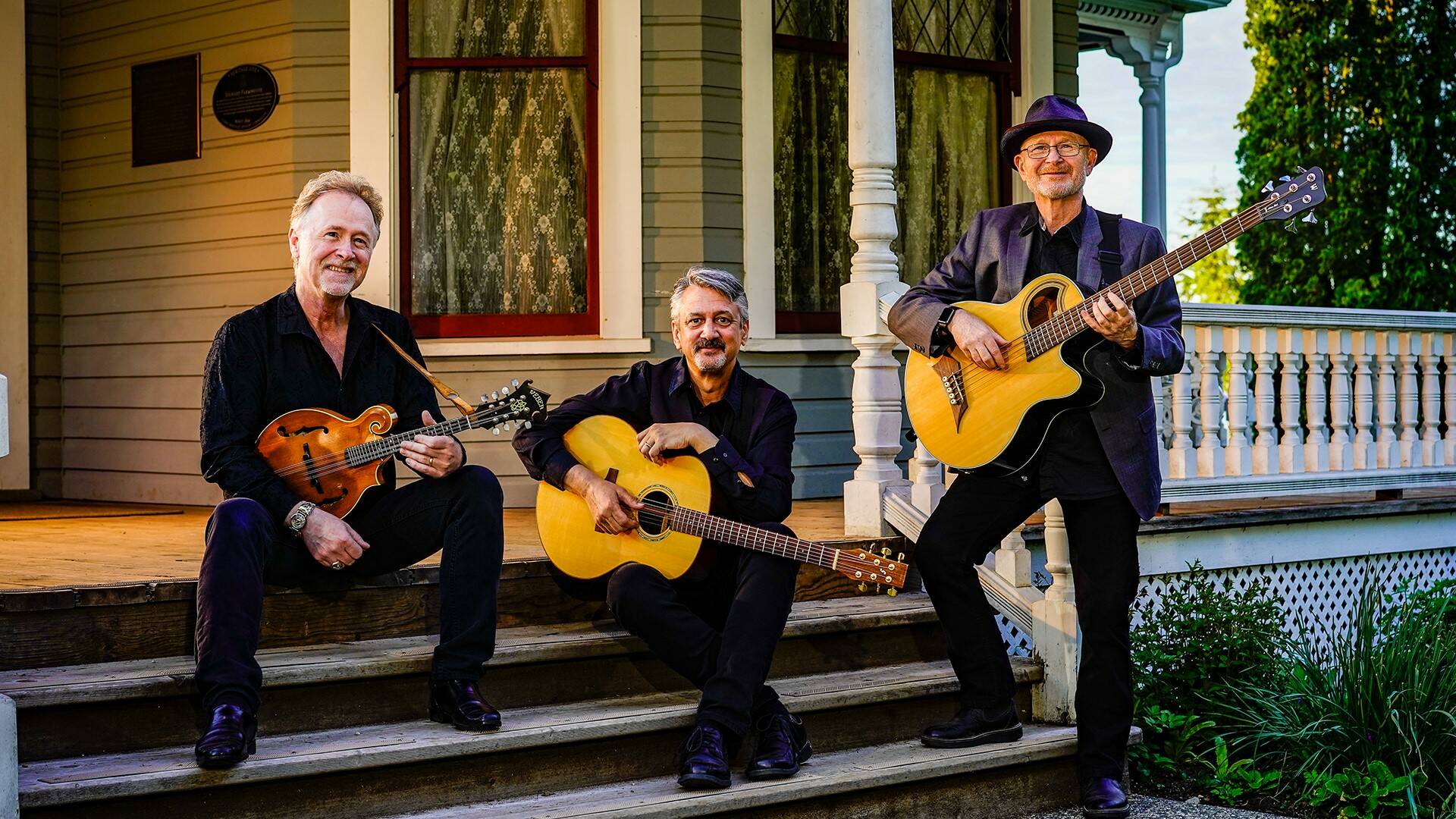For the countless island Celtic music fans, Tiller’s Folley, based out of Vancouver Canada, plays at the San Juan Island Community Theatre Jan. 26 at 7:30 p.m. One of their original fiddlers came up with the name. Tiller meaning breaking new ground, and folley being what happens while making other plans. While they suggested it for a song, the group loved the name so much they decided to use it for the band.
“It has been our story, setting up to try something new, and we have had pretty grand adventures over the years,” bandmember Bruce Coughlan said. Tillers Folley took roots in 1997, when “Lord of the Dance” was taking America by storm. It originally consisted of traditional Irish dancers as well as musicians. They played all over North America as well as multiple times in Scotland. “We had some of my favorite adventures in Scotland,” Coughlan said. “The music culture, general warmth of the people there, it’s one of my favorite places.”
The band is now made up of three of the original players: Coughlan, Laurence Knight and Nolan Murray, playing a mix of Celtic, bluegrass and Americana. Being from the Pacific Northwest, many of the songs reflect the history and culture of the area. The band was also present during a gathering of Orca researchers and activists at Lime Kiln State Park nearly a decade ago, where the trio learned in depth about the local orcas. The Southern Residents, a group of three pods that typically frequented the San Juans also made an appearance, swimming by so close Coughlan felt like he could reach down and touch them. The band hung out for hours at the park, watching the whales. Later, Murray was inspired to write “Bring Lolita Home.” Tillers Folley will play the song in her memory.
Other songs on the set list include “Spanish Banks,” which explains the name behind the San Juans, and Steam Boatin’ Jamisons, which tells the story of five brothers from Scotland who perished in a steamboat in the Fraiser River.
“Bitter End” sings of murder most foul, Coughlan said. “It takes place during the prohibition. A boat left Sidney for Port Townsend but never arrived.” The boat was captured by pirates. One of the pirates Owen Baker was caught and hanged. When asked if he had any last words, Baker responded “Step on it buddy, I haven’t got all day.”
Being the day after Bobby Burns’ Day, Scotland’s National Bard, there will also be a few obligatory Robert Burns songs, including “Auld Ang Sine.”
Coughlan was drawn into music at six years old after his father brought him to The Clancy Brothers concert. He loved everything about the performance. “My jaw just dropped. I said this is for me, that is what I am going to do,” Coughlan said. He picked up the guitar as soon as his arms were big enough. While he plays some other instruments, the guitar remains his favored and primary one.
At 13, a music teacher told him he had no musical aptitude and would not let him join the band or the choir. Coughlan left school shortly after. His father’s house rule was either to attend school or find a job, so Coughlan began working with chickens. It was the only job as a 13-year-old that he could find. A year later he began busking. Later, he began taking jobs in pubs and restaurants, plus playing in some garage bands. Fifty years later, he is still playing music and loving every minute.
For young musicians, Coughlan recommends looking at a song in terms of its value to connect the community rather than its ability to generate revenue. Of course, the need to pay bills and earn money plays a factor in the musician’s life, he clarified. However, seeing the deeper potential of a song will bring people together and create something more powerful.
“Music is rather undervalued these days,” Coughlan said. “Twenty years ago, I could walk to the grocery store, nod and smile with everyone I passed.” With urban sprawl, cities are less walkable, and when one does, people rarely look up from their phones, let alone acknowledge each other.
“We are losing so much community. Live authentic music where people actually play the instruments, you can reach out into a community, create a feeling in a common, share a memory,” Coughlan explained.
Tickets are $31 for adults, Student Reserved is $15 and Student Rush are $5 at the door. To buy a ticket, or for more information, visit https://www.sjctheatre.org/whats-happening/calendar/eventdetail/136621/tiller-s-folly.



